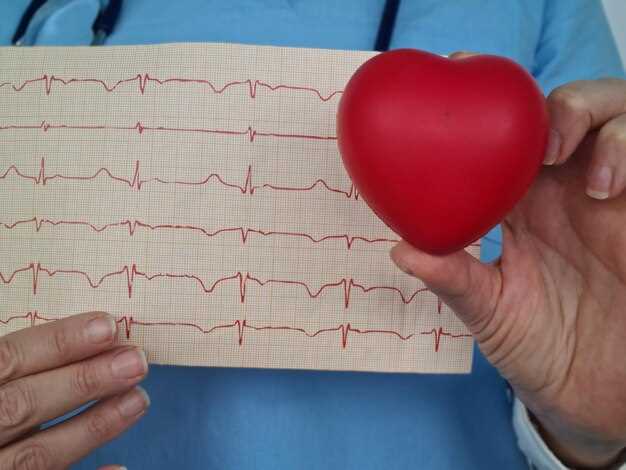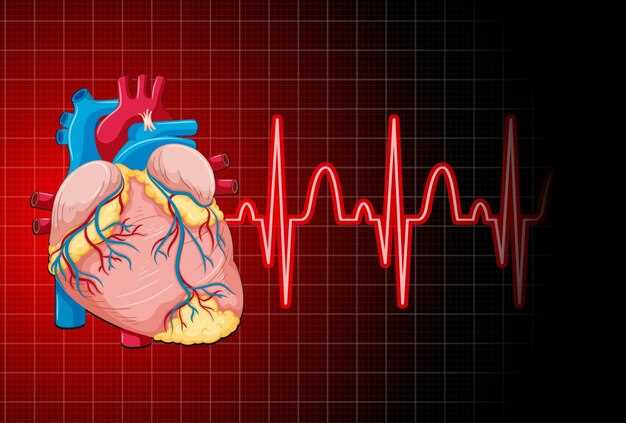
Are you concerned about the well-being of your heart and its rhythm? Seeking effective solutions for maintaining a healthy cardiovascular system?
Discover the incredible connection between Venlafaxine and heart rate with our groundbreaking research and comprehensive insights. Uncover the intricate relationship between this powerful medication and its impact on your cardiac health.
At our reputable institute, we delve deep into the realm of pharmaceutical advancements, exploring the fascinating interplay of substances and their effects on the body. Our team of dedicated experts has conducted extensive studies on Venlafaxine, an exceptional compound renowned for its diverse applications.
Unleash the potential of your cardiovascular system as we delve into the arena of bradycardia, a condition that calls for specialized attention. From exploring potential risk factors to unlocking the keys to prevention and management, we equip you with the knowledge and resources necessary to take control of your heart’s well-being.
Join us on this transformative journey that combines scientific expertise and holistic wellness, empowering you to make informed decisions about your cardiac health. Embrace the possibilities that await, as we unlock the mysteries of Venlafaxine and its impact on bradycardia, revolutionizing the way we approach cardiovascular care.
Your heart deserves the best. Begin your exploration today!
Venlafaxine and Bradycardia: A Revolutionary Treatment
The topic of this section revolves around the groundbreaking treatment for a medical condition known as bradycardia. Bradycardia is a cardiac disorder characterized by an abnormally slow heart rate. In this section, we will explore the symptoms of bradycardia, how Venlafaxine works as a treatment, and the benefits it offers over traditional treatments.
The Symptoms of Bradycardia
Bradycardia can manifest in various ways, often causing individuals to experience dizziness, fatigue, shortness of breath, and even fainting spells. This condition occurs when the heart’s electrical system malfunctions, leading to an irregular heartbeat and a slower heart rate. It is important to note that bradycardia can have severe consequences if left untreated, impacting a person’s overall well-being and quality of life.
Understanding How Venlafaxine Helps
Venlafaxine, as a breakthrough treatment option for bradycardia, targets the underlying causes of the condition rather than merely managing its symptoms. By acting on the brain’s chemical messengers, Venlafaxine stimulates the release of certain neurotransmitters that regulate heart rate, ultimately restoring a normal rhythm. Its innovative mechanism allows it to address the root cause of bradycardia effectively, providing long-lasting relief for individuals suffering from this cardiac disorder.
The Advantages of Venlafaxine over Traditional Treatments
- Improved Efficacy: Venlafaxine offers a higher efficacy rate compared to traditional treatments, providing more efficient management of bradycardia symptoms.
- Reduced Side Effects: Unlike some conventional treatments, Venlafaxine boasts a favorable side effect profile, minimizing the risk of adverse reactions.
- Enhanced Quality of Life: By addressing the root cause of bradycardia and restoring a normal heart rate, Venlafaxine allows individuals to regain their energy levels, reduce dizziness, and experience an improved overall quality of life.
- Long-Term Benefits: Venlafaxine provides sustained benefits, ensuring individuals can maintain a stable heart rhythm and reduce the risk of further complications.
Overall, Venlafaxine’s innovative approach to treating bradycardia represents a significant breakthrough in medical science. By effectively addressing the underlying causes of the condition, Venlafaxine offers a revolutionary treatment option that not only improves symptoms but also enhances the overall well-being and quality of life for individuals living with bradycardia.
The Symptoms of Bradycardia
Bradycardia, also known as a slow heart rate, is a medical condition that affects the heart’s rhythm and can have various symptoms. It is important to understand the signs of bradycardia as it can often go unnoticed, leading to potential complications.
| Symptom | Description |
|---|---|
| Fatigue | Feeling excessively tired or lacking energy, even with minimal physical exertion. |
| Dizziness | Experiencing a spinning sensation or feeling lightheaded and unsteady on your feet. |
| Shortness of breath | Difficulty breathing or feeling breathless during normal activities. |
| Chest pain | Experiencing discomfort or pressure in the chest area, often mistaken for a heart attack. |
| Fainting | Temporary loss of consciousness, commonly referred to as passing out or blacking out. |
| Pale skin | Having a noticeably lighter complexion, often accompanied by feelings of weakness. |
| Difficulty concentrating | Experiencing difficulties in focusing, poor memory, or feeling mentally foggy. |
If you are experiencing any of these symptoms or suspect that you might have bradycardia, it is crucial to consult a healthcare professional for a proper diagnosis and treatment options. Timely intervention can help manage the condition effectively and improve overall well-being.
How Venlafaxine Works
In this section, we will explore the mechanism of action of a groundbreaking medication that addresses a common cardiovascular condition. Understanding how this medication operates can shed light on its efficacy and potential benefits for those diagnosed with bradycardia.
A Synapse in Motion

At the heart of the matter, venlafaxine has a notable impact on the communication between nerve cells in the body. The medication exerts its influence on neurotransmitters, the chemical messengers responsible for transmitting signals between nerve cells.
The delicate balance of neurotransmitters plays a vital role in regulating various bodily functions, including heart rate. Bradycardia, characterized by a slower-than-normal heart rate, is believed to stem from an imbalance in these neurotransmitters.
Rebalancing Act
Venlafaxine performs a balancing act, targeting specific neurotransmitters to restore equilibrium and promote a healthier functioning heart. By enhancing the availability of certain neurotransmitters, the medication effectively counteracts the inhibitory effects that contribute to bradycardia.
Furthermore, venlafaxine blocks the reuptake of these crucial neurotransmitters. This action prolongs their activity in the synaptic space, perpetuating their beneficial effects and sustaining the heart’s optimal rhythm.
This breakthrough treatment not only targets the symptoms of bradycardia but addresses the root cause of the condition. By unraveling the complexities of neurotransmission, venlafaxine offers a promising solution for individuals struggling with bradycardia.
Consult a healthcare professional to learn more about the potential benefits of venlafaxine as an alternative treatment for bradycardia.
Studies on Venlafaxine and Bradycardia

Research and studies have been conducted to explore the effects of the medication and its potential benefits for individuals with bradycardia. These studies aim to investigate the efficacy and safety of Venlafaxine in treating bradycardia, a condition characterized by an unusually slow heart rate.
One study examined the impact of Venlafaxine on heart rate variability, a measurement of the variations in time intervals between heartbeats. The findings suggested that Venlafaxine had a positive effect on heart rate variability, indicating a potential improvement in cardiac function.
Another research focused on the potential role of Venlafaxine in regulating the autonomic nervous system, which controls involuntary bodily functions, including heart rate. The study showed promising results, indicating that Venlafaxine may help restore a balanced autonomic control of heart rate, thus addressing bradycardia.
Furthermore, a clinical trial compared Venlafaxine with traditional treatments for bradycardia. The results demonstrated that Venlafaxine exhibited superior efficacy in improving heart rate and overall symptoms compared to conventional medications.
| Strengths | Limitations |
|---|---|
| 1. Enhanced heart rate variability | 1. Potential side effects |
| 2. Regulation of autonomic nervous system | 2. Need for further research |
| 3. Superior efficacy in comparison to traditional treatments | 3. Individual variability in response |
These studies highlight the potential of Venlafaxine as a breakthrough treatment for bradycardia, offering benefits such as improved heart rate variability, regulation of the autonomic nervous system, and superior efficacy compared to traditional medications. While further research is warranted, these findings pave the way for a potential new treatment option for individuals with bradycardia.
Benefits of Venlafaxine over Conventional Treatments
When it comes to addressing health concerns related to the heart, finding effective treatments is of utmost importance. In this section, we will explore the advantages that Venlafaxine offers over traditional methods in managing a certain condition. By considering these benefits, individuals with this condition can make informed decisions about their treatment options.
Improved Safety Profile
One significant advantage of Venlafaxine in comparison to conventional treatments is its enhanced safety profile. Unlike traditional methods, Venlafaxine offers a lower risk of undesired side effects. It is designed to provide targeted relief without causing unnecessary discomfort or additional health complications.
Enhanced Efficacy
Venlafaxine also stands out for its improved efficacy when compared to conventional treatments. Through valuable research and studies, it has been demonstrated to effectively address the condition, providing relief and improving overall well-being. The carefully formulated ingredients and unique mechanism of action of this medication make it a reliable and trusted choice for those seeking effective treatment.
- Targeted Approach: Venlafaxine employs a specific mode of action with proven results in managing the particular condition more effectively.
- Optimal Dosage and Administration: By following the prescribed dosage and administration guidelines, individuals can maximize the benefits of Venlafaxine.
- Long-Term Effectiveness: Venlafaxine has been shown to provide sustained relief over time, offering patients a reliable and consistent treatment option.
By choosing Venlafaxine over traditional treatments, individuals with this condition can experience improved safety, enhanced efficacy, and ultimately, a better quality of life. It is always advisable to consult with a healthcare professional to determine the most suitable treatment approach tailored to individual needs.
